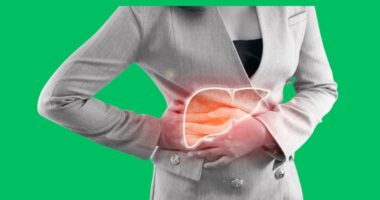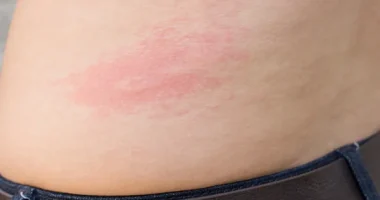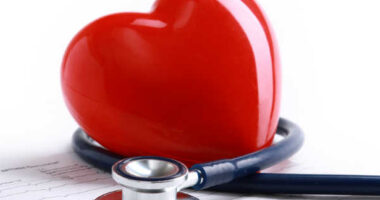Learn the Early Signs of Health Concerns before they become bigger problems. Understanding the subtle signals your body sends can help you identify potential health issues early on. This article explores five common conditions and their early warning signs, as discussed by Dr. Eric Berg.
Stroke
A stroke is a medical emergency that occurs when blood flow to part of the brain is interrupted. This can happen due to a blocked artery (ischemic stroke) or a burst blood vessel (hemorrhagic stroke). Both types are serious and require immediate medical attention to minimize brain damage and potential complications.
Recognizing the early warning signs of a stroke is crucial for seeking timely medical help and improving your chances of a full recovery. Dr. Eric Berg explained that the key warning signs of a stroke are;
- Facial Drooping: One side of your face may droop or feel numb, making it difficult to smile or frown.
- Arm Weakness: You may experience sudden weakness or numbness in one arm, making it difficult to raise both arms equally.
- Speech Difficulty: Your speech may become slurred, garbled, or difficult to understand.
- Vision Problems: You may experience sudden vision loss in one or both eyes, blurred vision, or double vision.
- Headache: You may experience a sudden, severe headache with no known cause.
- Additional Warnings: You might also experience dizziness, confusion, loss of balance, or difficulty walking.
Action: Seek immediate medical attention. Time is critical in stroke cases.
Heart Disease
Heart disease is the leading cause of death for both men and women in the United States. Early detection and treatment are crucial for preventing serious complications, such as heart attack, stroke, and heart failure.
Here are some of the early warning signs of heart disease that you should not ignore mentioned by Dr. Berg:
- Chest pain, discomfort, or tightness
- Pain radiating to the left arm, jaw, or shoulder
- Dizziness or shortness of breath during exertion
- Feeling unusually tired or fatigued
Dr. Berg’s suggestions: Consider a CAC scan to assess arterial calcification, and consider natural remedies like vitamin E, vitamin K2, and dietary changes.
Infection
An infection is defined as the invasion and multiplication of microorganisms, such as bacteria, viruses, and parasites, that are not normally present within the body. This invasion can lead to the body’s immune response, causing harm and potentially resulting in an infectious disease. The effects of infections occur due to the immune system’s attempt to eliminate the invading pathogens, and if the immune system is unable to control the infection, serious damage can result. Infections can be caused by various infectious agents, including bacteria, viruses, fungi, and parasites, and they can lead to a wide range of illnesses, from minor to severe. The branch of medicine that focuses on infections is referred to as infectious diseases.
The early signs that may indicate the presence of an infection according to Dr. Eric Berg include a tickle in the throat, an irritating cough that persists, excessive sneezing, or a runny nose. Being able to recognize these indicators is valuable, as they can help in understanding the body’s condition before it develops further.
Dr. Berg’s suggestions: Boost your immune system with vitamin D3, zinc, and vitamin C. Consider echinacea and induce a slight fever through natural means.
Fatty liver disease
Fatty liver disease, also known as hepatic steatosis, is a condition characterized by the accumulation of fat in the liver. There are two main types: nonalcoholic fatty liver disease (NAFLD) and alcoholic fatty liver disease. NAFLD is not related to heavy alcohol use and is often associated with obesity, diabetes, high blood pressure, and high levels of fats in the blood. It is the most common form of chronic liver disease, affecting about 25% of the world’s population. Alcoholic fatty liver disease, on the other hand, is due to heavy alcohol use, which can lead to liver damage. Fatty liver disease is often asymptomatic, but in some cases, it can progress to nonalcoholic steatohepatitis (NASH), a more severe form of the disease that can cause liver inflammation and scarring.
Warning signs: Protruding stomach (belly fat), itchy skin.
Dr. Berg’s suggestions: Implement a low-carb, ketogenic diet with intermittent fasting. Avoid alcohol, frequent snacking, and consider adding choline supplements.
Gallstones
Gallstones are hardened deposits of digestive fluid that can form in the gallbladder or bile ducts. They are made up of excess bile materials, such as cholesterol, bile salts, or bilirubin, that have hardened into stone-like material. Gallstones can range in size from as small as a grain of sand to as large as a golf ball. They are common, especially in women and people assigned female at birth, and can be asymptomatic. However, if they get stuck in the biliary tract and block bile flow, they can cause pain and serious complications.
Warning signs: Dark urine, light-colored or floating stools, constipation.
Dr. Berg’s advice: Increase bile salt intake for a period to address the underlying cause.
Important Disclaimer:
While Dr. Berg offers suggestions for managing some health conditions, it’s essential to consult a qualified medical professional for diagnosis and treatment. This article is for informational purposes only and should not be interpreted as medical advice[1].
ALSO READ: What Is The First Sign Of Tuberculosis TB? Types, Causes, Transmission and Prevention









